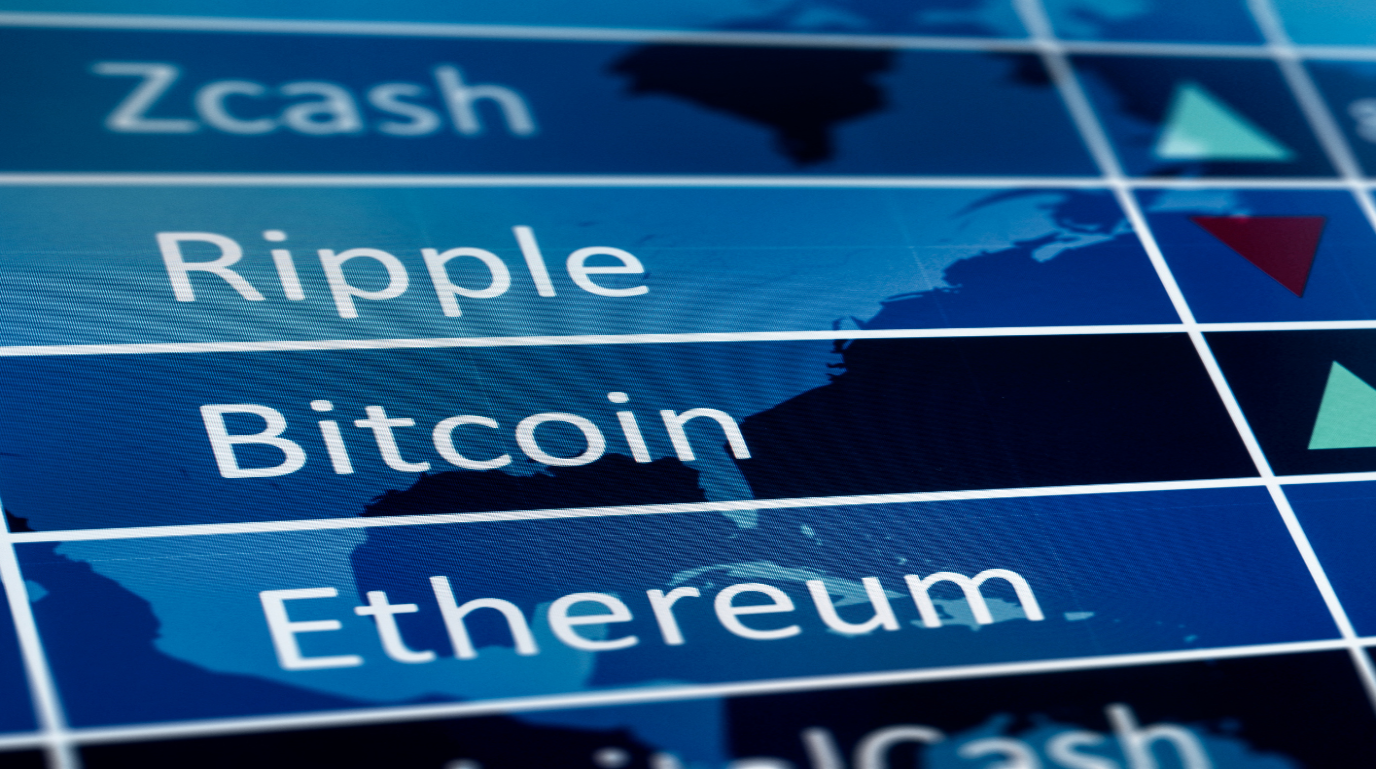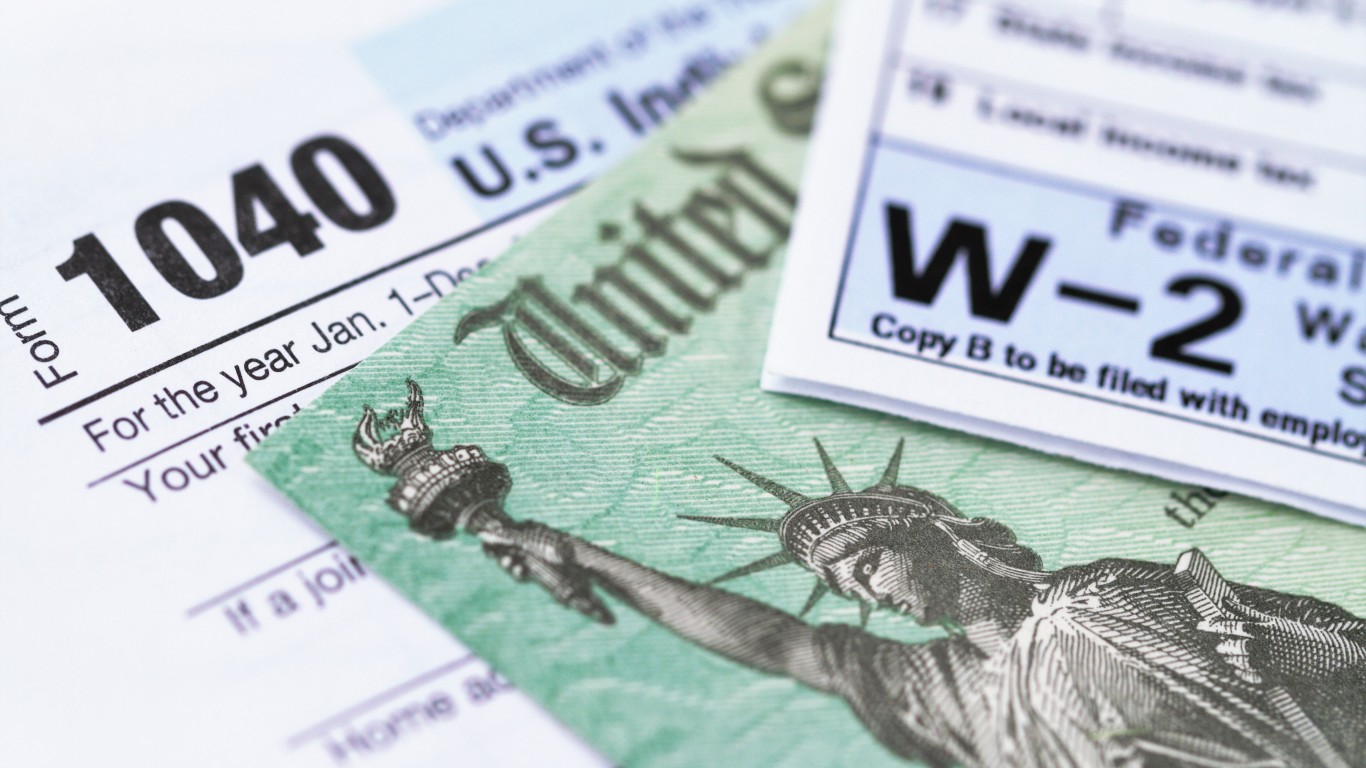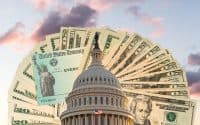
As all investors know (unless they’ve just awakened from a 20-year nap) cryptocurrency exchange Coinbase Global Inc. (NASDAQ: COIN) is coming public Wednesday morning. The direct stock offering values the company at around $65.3 billion, based on Nasdaq’s reference price of $250 a share and 261.3 million shares outstanding.
At that valuation, Coinbase’s market cap is about half that of Goldman Sachs Group Inc. (NYSE: GS), which reported first-quarter 2021 earnings Wednesday morning that absolutely shattered expectations. Reported revenue of $17.7 billion was nearly 43% higher than the consensus forecast, and earnings per share (EPS) of $18.60 were 82% higher than Wall Street’s estimate. During the quarter, Goldman Sachs repurchased $2.7 billion in its own stock and paid $448 million in dividends. Shares traded up about 1.3% to $332.05 just after Wednesday’s opening bell.
JPMorgan Chase & Co. (NYSE: JPM) also reported first-quarter results Wednesday morning. The largest (by market cap) of the nation’s big banks, JPMorgan reported managed revenue totaling $33.12 billion, some 8.5% above the street’s estimate, and EPS of $4.50, about 47% higher than the consensus estimate. The bank repurchased $4.3 billion of common stock in the quarter and paid out $2.8 billion in common dividends. The stock traded down about 1% early Wednesday at $152.56.
Wells Fargo & Co. (NYSE: WFC) reported first-quarter EPS of $1.05, 52% higher than the consensus estimate, on revenue of $18.06 billion, 3.2% higher than expectations. The bank’s EPS included $0.28 per share attributed to a decrease in the allowance the bank is required to make for credit losses. Wells Fargo paid out $414 million in dividends and repurchased $596 million of its common stock. The stock traded down less than 1% at $39.46.
Goldman’s record quarterly revenue and EPS were due largely to its investment banking segment, which posted record revenue of $3.77 billion. The EPS beat at JPMorgan had to do mostly with a credit reserve release of $5.2 billion and a decline of 11% in net interest income for the quarter. At Wells Fargo, consumer lending was down 8%, commercial banking loans were down 19% and investment banking lending was down 5%, while wealth management lending rose 4%.
For fiscal 2020, Coinbase reported $1.14 billion in revenue and diluted EPS of $1.40 ($1.57 on a pro forma basis). The company ended the year with $1.06 billion in cash and equivalents and total assets of $5.86 billion. The exchange reported 43 million verified users, of which 2.8 million used the exchange monthly. Trading volume was $193.1 billion, and net income totaled $322 million.
Coinbase will realize no cash from the direct listing. All proceeds of the offering will go instead to selling shareholders. CEO Brian Armstrong is the largest shareholder, with nearly 34 million Class A shares, with venture capital firm Andreessen Horowitz next in line with about 29.5 million shares. The company said it had approximately 430 shareholders of its class A and class B common stock.
The Coinbase initial stock offering likely will be Wednesday’s biggest market story. The attention is deserved because many shares and a lot of cash will change hands. Whether cryptocurrencies like bitcoin can ever be more than outlets for investors’ speculative urges remains to be seen, but, to some degree, that doesn’t really matter for Coinbase.
Is Your Money Earning the Best Possible Rate? (Sponsor)
Let’s face it: If your money is just sitting in a checking account, you’re losing value every single day. With most checking accounts offering little to no interest, the cash you worked so hard to save is gradually being eroded by inflation.
However, by moving that money into a high-yield savings account, you can put your cash to work, growing steadily with little to no effort on your part. In just a few clicks, you can set up a high-yield savings account and start earning interest immediately.
There are plenty of reputable banks and online platforms that offer competitive rates, and many of them come with zero fees and no minimum balance requirements. Click here to see if you’re earning the best possible rate on your money!
Thank you for reading! Have some feedback for us?
Contact the 24/7 Wall St. editorial team.


